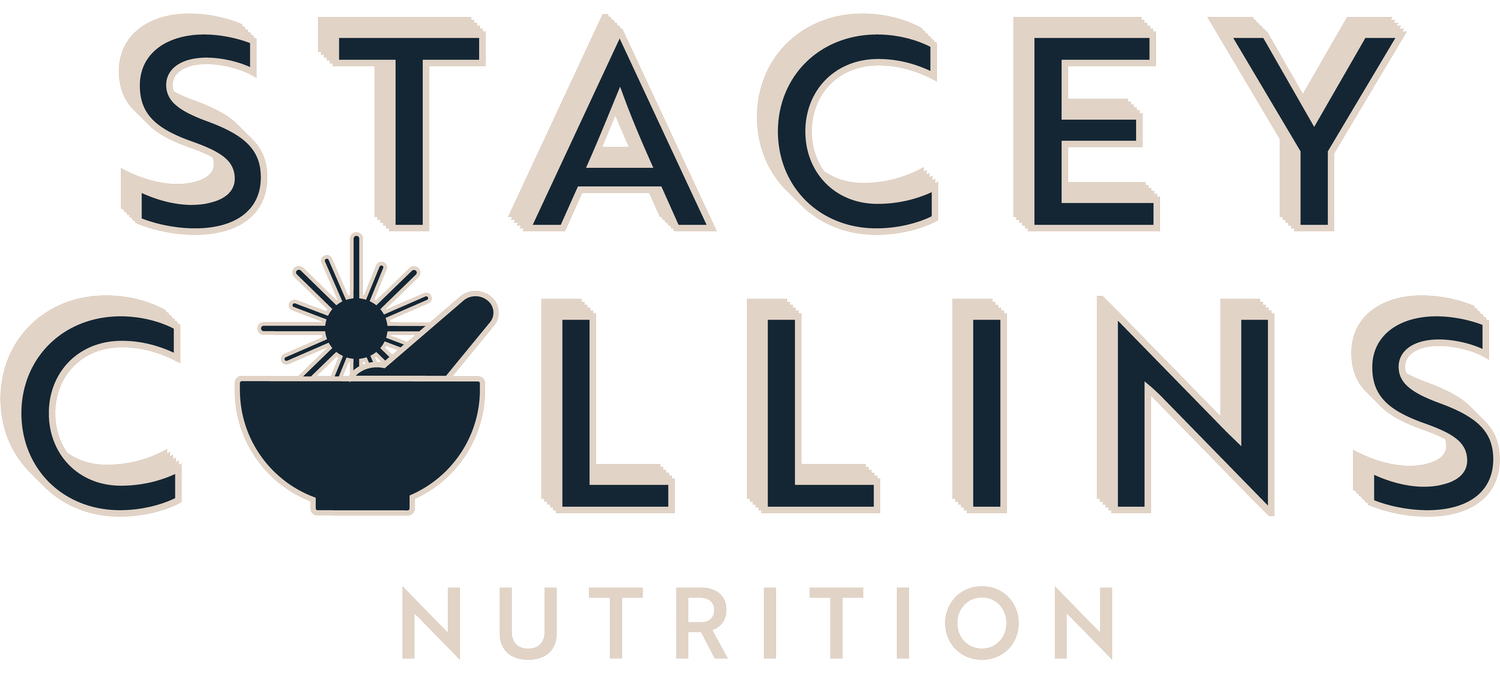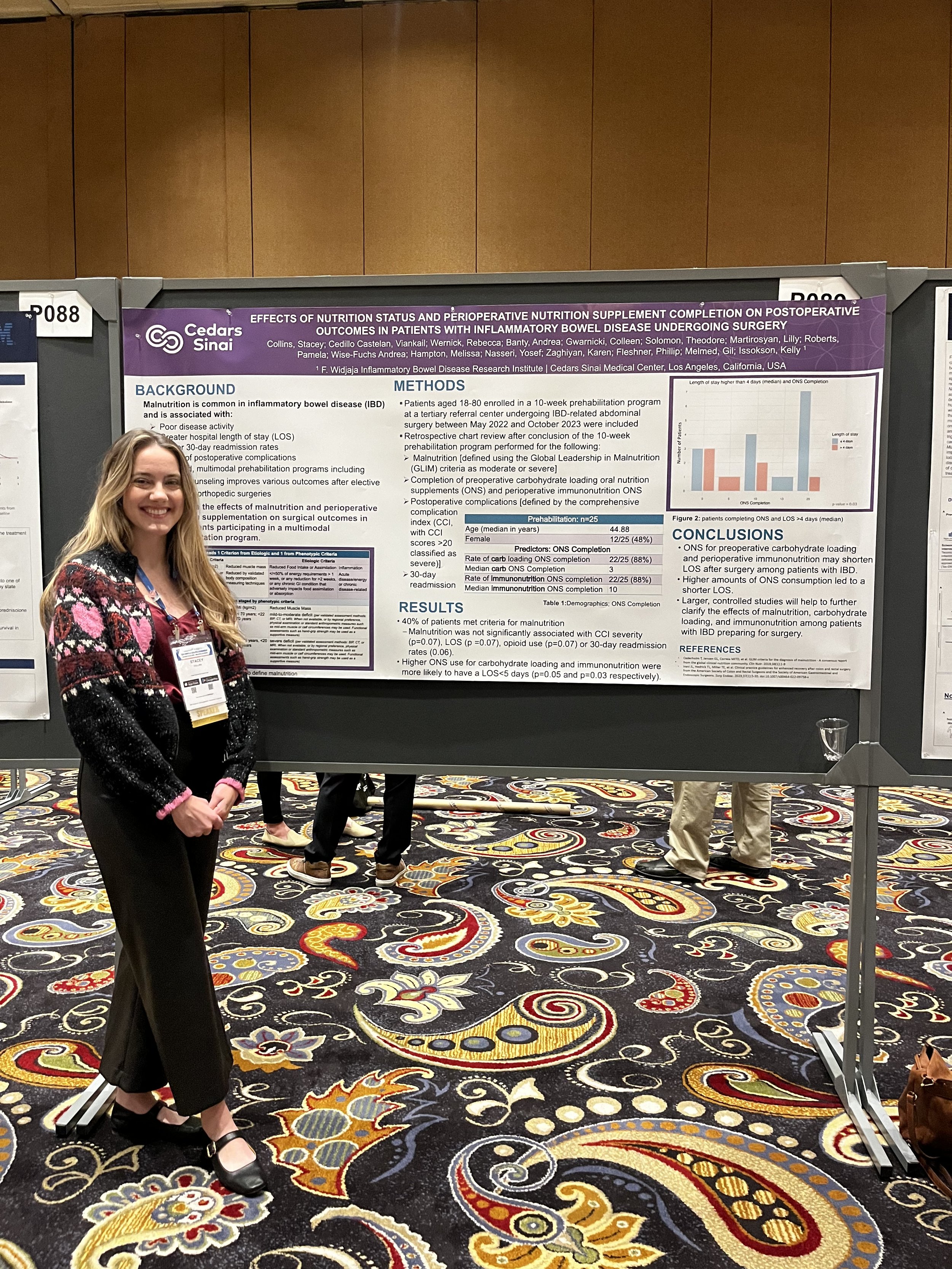3 Reasons to Work with a Registered Dietitian Nutritionist BEFORE Surgery for IBD
Work with a Registered Dietician Before IBD Surgery
Reason #1
You deserve a whole-person nutritional approach before surgery even begins.
This starts with a thorough assessment: Which risk factors need to be addressed so that patients have a much better chance recovering from surgery without risk for complications?(1) From a nutrition perspective, first and foremost this includes assessing a patient for malnutrition risk, with an eye toward prevention if at all possible. Malnutrition is experienced commonly by people with both Crohn’s and ulcerative colitis (UC), even in remission, and it is associated with poor surgical and disease-related outcomes (2). Not to worry; this is where the help of a dietitian can be impactful: reducing as many nutritional risk factors as possible for best chances of a smooth recovery. This is a basic level of care that anyone going into surgery deserves.
Here are a few other nutrition-related factors that I’m looking out for in my patient headed into surgery:
Is the person consuming a diet that is complete with all the essential nutrients?
Is the person depleted/deficient in any micronutrients that need to be replenished judiciously before surgery?
Is the person in a state of current active inflammation that drives their nutrient demands even higher? And if so, what percentage of these demands is their current eating pattern meeting?
Is the person in need of texture modifications to ensure that they are safe headed into surgery (e.g. strictures)?
What does the person’s lifestyle look like so I can identify the most practical strategy to ensure they are nourished for surgery?
Who is the primary cook in the household? Will this shift after surgery? If there are children in the household, will their primary cook shift after surgery for a time?
What is their current supplement regimen look like, and is there room for simplification?
How is this person currently hydrating their body (e.g. sports beverage? tea? water? frequency, amount?)?
Which type of surgery is this person needing? How will that impact absorption of nutrients?
Reason #2
Nutrition before surgery makes a difference during and after surgery. People who work with a dietitian for a supplementation regimen around surgery might experience:
a decrease in chances of problems from surgery
better blood sugar response during surgery
muscles in the stomach and intestines returning to function with ease
a well-supported healing process
possibly reducing feelings of sickness, throwing up, and bloating after surgery
possibly reducing down the time you needed to stay in the hospital (3,4)
^ Here’s where I’ve collaborated in research to see results: Regardless of nutrition status (whether or not they were malnourished), our study showed that patients who were able to adhere to the dietitian-led supplementation protocol around their surgery had shorter hospital length of stays (5)
Reason #3
Support from a registered dietitian nutritionist can help you get nourished and stay strong! Life awaits! Surgery is intended to improve a person’s quality of life, and too often this is a prolonged process because patients going through surgery are:
not only healing from surgery; they’re healing from malnutrition, too
unsure of what to eat/how much to eat after surgery
unsure how to properly hydrate themselves after surgery (hydration is one of the most common reasons for hospital readmission) (6)
unsure how to eat safety after surgery: textures? amount? Often patients are told anything ranging from, “You can eat anything” to “Just take it slow”, and this lack of proper guidance isn’t helpful, especially in people with chronic GI disease who might have a complex history with the experience of eating.
If you’d like to be thoroughly assessed and properly supported before, during, and after surgery, please reach out to schedule a complimentary discovery call, where we can talk through your concerns and how I can help. Not only do I have experience helping people through surgery: these are supports that I didn’t have and had to advocate for/give to myself while entering into/healing from 3-stages of j-pouch surgery. Let me help you understand your body’s nutrition needs, what to anticipate, and how to navigate it all through individualized nutrition care.
References:
Carli F, Silver JK, Feldman LS, et al. Surgical Prehabilitation in Patients with Cancer: State-of-the-Science and Recommendations for Future Research from a Panel of Subject Matter Experts. Phys Med Rehabil Clin N Am. 2017;28(1):49-64. doi:10.1016/j.pmr.2016.09.002
Ünal NG, Oruç N, Tomey O, Ömer Özütemiz A. Malnutrition and sarcopenia are prevalent among inflammatory bowel disease patients with clinical remission. Eur J Gastroenterol Hepatol. 2021;33(11):1367-1375. doi:10.1097/MEG.0000000000002044
McAlee A, Allred J. Early Versus Traditional Oral Feeding Following Elective Colorectal Surgery: A Literature Review. Crit Care Nurs Q. 2021;44(2):147-159. doi:10.1097/CNQ.0000000000000349
Canzan F, Caliaro A, Cavada ML, Mezzalira E, Paiella S, Ambrosi E. The effect of early oral postoperative feeding on the recovery of intestinal motility after gastrointestinal surgery: Protocol for a systematic review and meta-analysis. PLoS One. 2022;17(8):e0273085. Published 2022 Aug 18.
Collins, Stacey et al. Effects of nutrition status and perioperative nutrition supplement completion on postoperative outcomes in patients with inflammatory bowel disease undergoing surgery. Poster presented at Crohn’s & Colitis Congress; Jan 25-27, 2024; Las Vegas
Chen SY, Stem M, Cerullo M, et al. Predicting the Risk of Readmission From Dehydration After Ileostomy Formation: The Dehydration Readmission After Ileostomy Prediction Score. Dis Colon Rectum. 2018;61(12):1410-1417. doi:10.1097/DCR.0000000000001217

